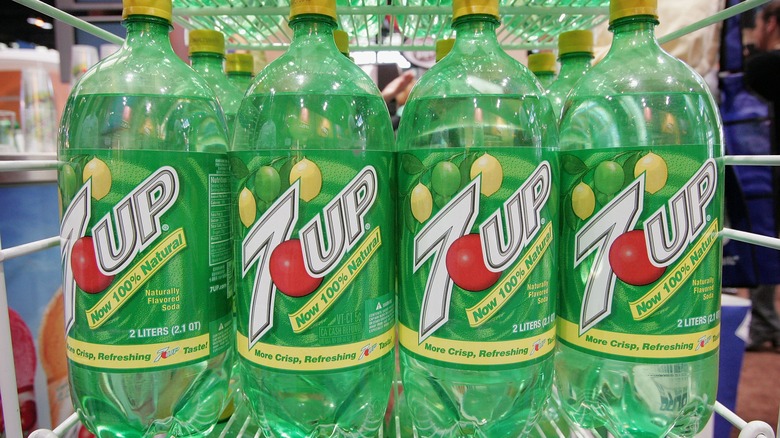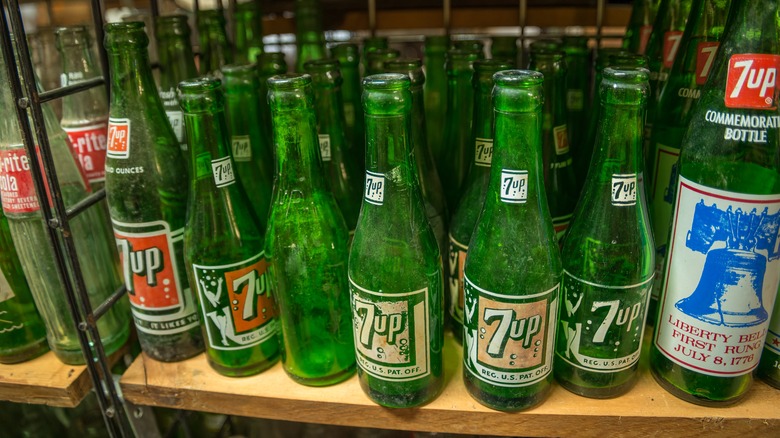The Unlikely Ingredient That Used To Be The Main Selling Point Of 7UP
Many of the longest-standing American food and beverage brands have surprising histories. One of the most famous examples is Coca-Cola, which was originally intended to be a medicinal beverage. It has a notorious reputation for having contained a substance that wouldn't fly today: cocaine. (The "coca" portion of Coca-Cola's name is a reference to the coca leaf extract that was part of its initial formula.) The truth is, it's most likely that the drink didn't have very much of the actual stimulant in it, and technically, it was a precursor substance called ecgonine. Even then, any amount of "cocaine" that was in Coca-Cola was gone by 1930.
But it turns out that another stalwart of the soda aisle, the seemingly innocuous lemon-lime soft drink 7UP, has a similar medicinal origin story. I'm used to 7UP being a drink my mother gave me to calm an upset stomach when I was a kid, but if she'd have given it to me when the drink was first invented back in 1929, I'd have been ingesting a dose of a substance that's now used to treat a much different condition: the mood stabilizer lithium citrate. And the lithium was the soda's main selling point.
7UP contained lithium until 1950
7UP didn't always have such a short and catchy name. When it first came out, it was called Bib-Label Lithiated Lemon-Lime Soda, which doesn't exactly roll off the tongue. And as you can see, the presence of lithium was very clearly acknowledged in its name back then. Not long after, it was changed to 7UP Lithiated Lemon Soda, and then its moniker was finally trimmed down to 7UP in 1936.
Lithium citrate is still used as a mood stabilizer today, used to treat mania and depression, often in the context of treatment for bipolar disorder. It remained an ingredient in the soda through the 1940s. In 1948, however, the U.S. government banned its usage in beer and soft drinks; 7UP would end up being reformulated in 1950.
While soda isn't used as a pharmaceutical vehicle anymore, vestiges of its historical use still remain in modern beverages, such as in the form of wellness drinks that have flooded the market in recent years. Many claim to have varying health benefits, from promoting gut health to aiding sleep and more, and if you want to really relax, THC beverages are even available, where legal. I'd say that's at least a bit gentler of a selling point than, say, lithium, which I'm guessing is something my mother wouldn't ever have given me for a queasy belly.

